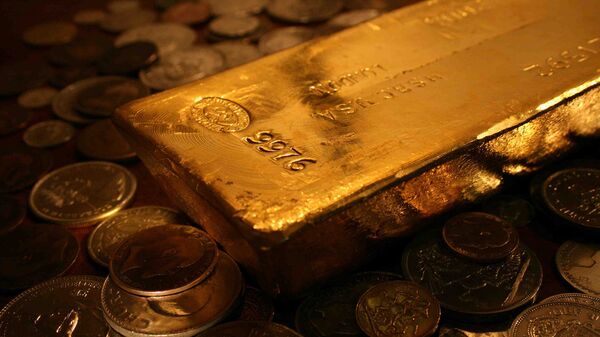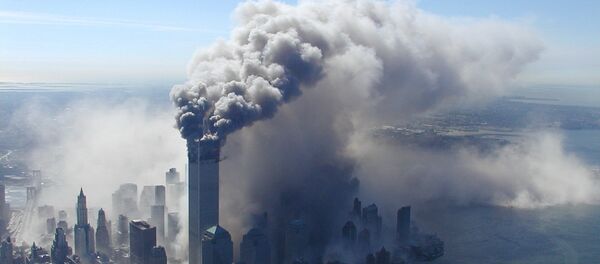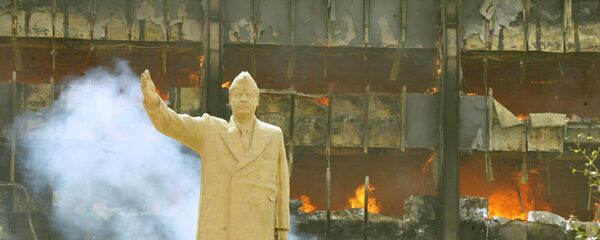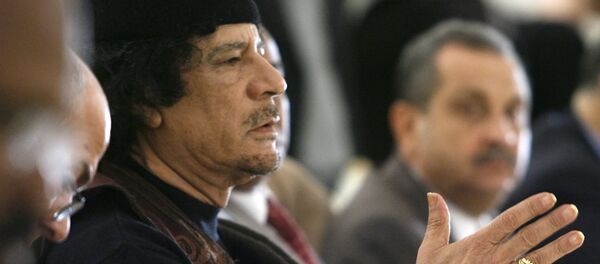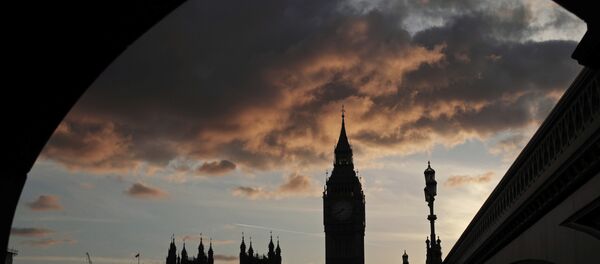Caracas has been waging a losing battle to get its gold back from the UK since late last year, with the Bank of England repeatedly refusing its repatriation requests, according to media reports. Last week, British Foreign Secretary Jeremy Hunt joined Britain's US allies in backing Juan Guaido, calling him "the right person to take Venezuela forward" and making the return of Venezuela's gold all the more unlikely. Over the weekend, as if on cue, Guaido praised London's decision not to return the gold.
All Part of the Job
The practice of freezing or seizing the assets of countries which somehow find themselves on the wrong side of US and European policymakers and financial interests is anything but new. A 1992 review of US extraterritorial asset freeze orders by legal scholar Rachel Gerstenhaber recounted well over a dozen cases of the US freezing or confiscating assets of countries including the likes of Iraq, Panama, Libya, Iran, South Vietnam, Cuba, Nicaragua and a bevy of former Eastern Bloc states. The list doesn't include similar moves by US allies in Western Europe, which similarly deprived countries of tens of billions of dollars in sovereign assets. For the sake of brevity, Sputnik focuses on three such cases.
Iran
On the eve of the signing of the landmark Joint Comprehensive Plan of Action (JCPOA), widely known as the Iran nuclear deal, in 2015, Tehran's frozen assets, including those stemming from the 1979 Revolution, as well as international nuclear-related restrictions, were estimated to amount to at least $100 billion. The chief of Iran's central bank said that only about $32 billion, a third of the total, could be released in connection with the nuclear deal.
Over three years after the JCPOA's signature, the fate of much of the wealth remains unclear. What is known is that US courts have heard multiple cases demanding the outright seizure of the Islamic Republic's wealth. This includes a 2016 ruling ordering Iranian cash to be paid to the families of US servicemen killed in the 23 October, 1983 truck bombings in Beirut, Lebanon. Tehran maintains that it had nothing to do with the act of terrorism, and has challenged the ruling with the International Court of Justice, so far unsuccessfully.
Iraq
In the run-up to the US invasion of Iraq in 2003, the military planning to seize the country's strategic assets was accompanied by economic calculations to seize some $1.75 billion in Iraqi assets already frozen in US accounts.
The seizure was just the tip of the iceberg in what would become what seems like a bottomless pit of asset pilfering in the chaos which followed the invasion. In 2010, a Pentagon audit concluded that it couldn't account for some $8.7 billion in missing Iraqi oil and gas money meant for reconstruction.
In a 2005 audit, US inspector general for Iraq reconstruction Stuart W. Bowen Jr. reported that over $8.8 billion in the funds could not be accounted for. Six years later, Bowen told Congress that US officials still hadn't accounted for some $6.6 billion in funds, and said the case could very well be "the largest theft of funds in national history."
Libya
The details of the suspected plundering of a major chunk of Libya's vast sovereign wealth fund in the aftermath of the NATO intervention to overthrow Libyan leader Muammar Gaddafi remain shrouded in mystery, close to eight years after the attack. In late 2018, officials from one of Libya's warring factions called on the UN Security Council to safeguard what's left of the Libyan assets still frozen in foreign accounts.
The scandal is just one of numerous major asset freezes and seizures by Western powers in the aftermath of Gaddafi's demise. In 2012, over a billion euros in assets belonging to Gaddafi's family and senior members of his government were seized in Italy at the request of the International Criminal Court, including stakes in major Italian companies, as well as property.
A year before that, the Obama administration froze $29.8 billion in Libyan wealth held in US banks including Goldman Sachs, Citigroup, JPMorgan Chase and the Carlyle Group.
The assets, along with $40 billion more in funds held elsewhere, were reported to have been unfrozen in December of 2011. However, UN officials later said that only about $3 billion of that had actually reached the country "due to concerns over who the money should be released to and other diplomatic problems." In late 2018, the head of Libya's sovereign wealth fund told Reuters that the fund was planning to appoint auditors to carry out a system-wide audit of its assets in 2019 to try to unfreeze some of the billions in assets still frozen. As of late last year, an estimated 70 percent of the Libyan Investment Authority's $67 billion in assets abroad remain frozen by the UN.
An estimated 9.5 billion pounds ($12.5 billion US) of Libya's wealth is still believed to be held in British banks. Tripoli has urged London not to go ahead with the seizure. "There is no lawful basis for the United Kingdom to seize or change ownership of the frozen LIA assets. These belong to the Libyan people," Libyan Investment Authority chief Ali Mahmoud Hassan Mohamed said in a letter addressed to the UK's Junior Foreign Minister Alistair Burt last October.
The unscrupulous use of Libyan national wealth hasn't been limited to post-Gaddafi Libya, either. Last year, former French President Nicolas Sarkozy was charged with bribery and accepting some 50 million euros in illegal campaign contributions from Libya ahead of the 2007 presidential election in France. Sarkozy repaid this generosity by being one of the key advocates of the 2011 NATO attack on Libya.
Caracas's Bullion
If the stories of asset freezes and seizures outlined above are anything to go by, it doesn't seem like it's going to be up to the Venezuelans to decide what Western governments and central banks do with their country's wealth.
